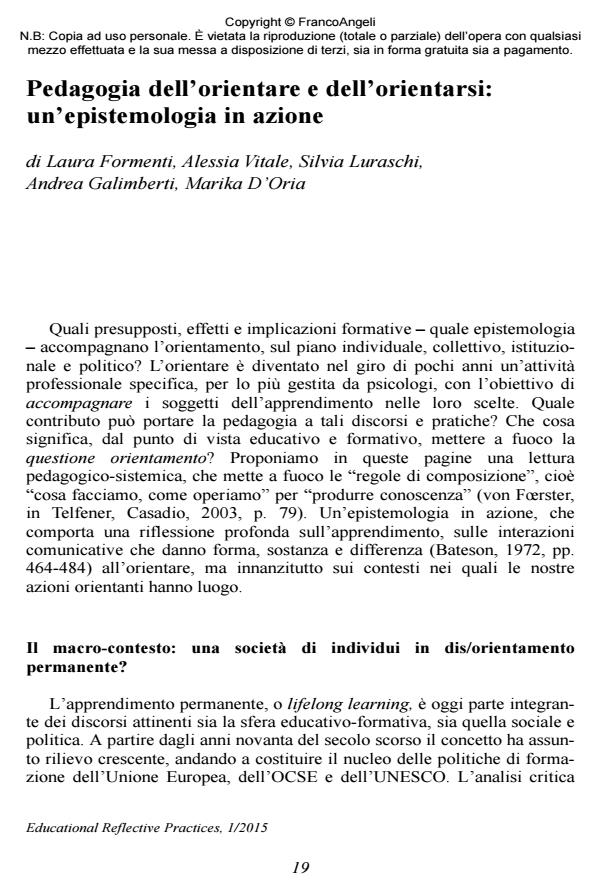Pedagogia dell’orientare e dell’orientarsi: un’epistemologia in azione
Journal title EDUCATIONAL REFLECTIVE PRACTICES
Author/s Laura Formenti, Alessia Vitale, Silvia Luraschi, Andrea Galimberti, Marika D'Oria
Publishing Year 2015 Issue 2015/1
Language Italian Pages 14 P. 19-32 File size 88 KB
DOI 10.3280/ERP2015-001002
DOI is like a bar code for intellectual property: to have more infomation
click here
Below, you can see the article first page
If you want to buy this article in PDF format, you can do it, following the instructions to buy download credits

FrancoAngeli is member of Publishers International Linking Association, Inc (PILA), a not-for-profit association which run the CrossRef service enabling links to and from online scholarly content.
Career guidance is a complex issue, involving a macro-level (social context), a meso-level (inter-active context) and a micro-level (individual as a context). The paper highlights the relationship between learning and orienting, the generative power of disorientation and the systemic character of orienting/self-orienting. To adopt a systemic perspective means to orient oneself towards an enacted epistemology, i.e. a reflexive and critical sight, that is implemented in embodied and enacted pedagogical practices, i.e. marked by doing, play, art, performativity, and aimed to open possibilities of transformative learning
Laura Formenti, Alessia Vitale, Silvia Luraschi, Andrea Galimberti, Marika D'Oria, Pedagogia dell’orientare e dell’orientarsi: un’epistemologia in azione in "EDUCATIONAL REFLECTIVE PRACTICES" 1/2015, pp 19-32, DOI: 10.3280/ERP2015-001002